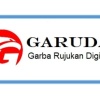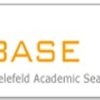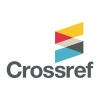- » Focus and Scope
- » Section Policies
- » Publication Frequency
- » Open Access Policy
- » Archiving
- » Publication Ethics
- » Publication Frequency
- » Witdrawal of Manuscripts
- » Licensing (Creative Commons) and Archiving
- » Hardcopy Order
- » Author Fees
- » Indexing
Focus and Scope
TIRTAMATH: Jurnal Penelitian dan Pengajaran Matematika is scientific, peer-reviewed and open access journal managed and published by Mathematic Education Study Program Universitas Sultan Ageng Tirtayasa, half-yearly on June and December. It aims to be open access journal platform which publishes and disseminates the ideas and researches on mathematics learning*. Its focus is to publish original research (qualitative research, classroom action research, development/design research are top priorities) in primary, secondary or undergraduate level.
To maintain the focus, the scope of the published articles will be as follows:
- Developing mathematics learning integrated with values or character
- Developing mathematics learning based on the constructivist perspective
- The development of technological-based mathematics learning tools and its use in mathematics classroom
- The development of pedagogical content knowledge for in-service and prospective mathematics teachers
*The term 'mathematics learning' involves both teaching and learning mathematics
Section Policies
Articles
Publication Frequency
Tirtamath: Jurnal Penelitian dan Pengajaran Matematika (p-ISSN: 2685-9890 and e-ISSN: 2720-9083).
Short journal title: Tirtamath
For year 2019, Volume 1, Number 1-2 are scheduled for publication (Juni & Desember).
TIRTAMATH: Jurnal Penelitian dan Pengajaran Matematika is electronically published via journal website https://jurnal.untirta.ac.id/index.php/Tirtamath.
TIRTAMATH: Jurnal Penelitian dan Pengajaran Matematika is published by Program Studi Magister Pendidikan Matematika, Universitas Sultan Ageng Tirtayasa.
Open Access Policy
This journal provides immediate open access to its content on the principle that making research freely available to the public supports a greater global exchange of knowledge.
Archiving
This journal utilizes the LOCKSS system to create a distributed archiving system among participating libraries and permits those libraries to create permanent archives of the journal for purposes of preservation and restoration. More...
Publication Ethics
Tirtamath: Jurnal Penelitian dan Pengajaran Matematika is a peer-reviewed electronic journal. This statement clarifies ethical behaviour of all parties involved in the act of publishing an article in this journal, including the author, the chief editor, the Editorial Board, the peer-reviewer and the publisher (Master of Mathematics Education Study Program, Universitas Sultan Ageng Tirtayasa). This statement is based on COPE’s Best Practice Guidelines for Journal Editors.
Ethical Guideline for Journal Publication
The publication of a peer-reviewed article in of TIRTAMATH: Jurnal Penelitian dan Pengajaran Matematika is an essential building block in the development of a coherent and respected network of knowledge. It is a direct reflection of the quality of the work of the authors and the institutions that support them. Peer-reviewed articles support and embody the scientific method. It is therefore important to agree upon standards of expected ethical behavior for all parties involved in the act of publishing: the author, the journal editor, the peer reviewer, the publisher, and the society.
Master of Mathematics Education Study Program, Universitas Sultan Ageng Tirtayasa as the publisher of TIRTAMATH: Jurnal Penelitian dan Pengajaran Matematika takes its duties of guardianship over all stages of publishing extremely seriously and we recognize our ethical and other responsibilities. We are committed to ensuring that advertising, reprint or other commercial revenue has no impact or influence on editorial decisions. In addition, Master of Mathematics Education Study Program and Editorial Board will assist in communications with other journals and/or publishers where this is useful and necessary.
Publication decisions
The editor of the TIRTAMATH: Jurnal Penelitian dan Pengajaran Matematika is responsible for deciding which of the articles submitted to the journal should be published. The validation of the work in question and its importance to researchers and readers must always drive such decisions. The editors may be guided by the policies of the journal's editorial board and constrained by such legal requirements as shall then be in force regarding libel, copyright infringement and plagiarism. The editors may confer with other editors or reviewers in making this decision.
Fair play
An editor at any time evaluates manuscripts for their intellectual content without regard to race, gender, sexual orientation, religious belief, ethnic origin, citizenship, or political philosophy of the authors.
Confidentiality
The editor and any editorial staff must not disclose any information about a submitted manuscript to anyone other than the corresponding author, reviewers, potential reviewers, other editorial advisers, and the publisher, as appropriate.
Disclosure and conflicts of interest
Unpublished materials disclosed in a submitted manuscript must not be used in an editor's own research without the express written consent of the author.
Duties of Reviewers
Contribution to Editorial Decisions
Peer review assists the editor in making editorial decisions and through the editorial communications with the author may also assist the author in improving the paper.
Promptness
Any selected referee who feels unqualified to review the research reported in a manuscript or knows that its prompt review will be impossible should notify the editor and excuse himself from the review process.
Confidentiality
Any manuscripts received for review must be treated as confidential documents. They must not be shown to or discussed with others except as authorized by the editor.
Standards of Objectivity
Reviews should be conducted objectively. Personal criticism of the author is inappropriate. Referees should express their views clearly with supporting arguments.
Acknowledgement of Sources
Reviewers should identify relevant published work that has not been cited by the authors. Any statement that an observation, derivation, or argument had been previously reported should be accompanied by the relevant citation. A reviewer should also call to the editor's attention any substantial similarity or overlap between the manuscript under consideration and any other published paper of which they have personal knowledge.
Disclosure and Conflict of Interest
Privileged information or ideas obtained through peer review must be kept confidential and not used for personal advantage. Reviewers should not consider manuscripts in which they have conflicts of interest resulting from competitive, collaborative, or other relationships or connections with any of the authors, companies, or institutions connected to the papers.
Duties of Authors
Reporting standards
Authors of reports of original research should present an accurate account of the work performed as well as an objective discussion of its significance. Underlying data should be represented accurately in the paper. A paper should contain sufficient detail and references to permit others to replicate the work. Fraudulent or knowingly inaccurate statements constitute unethical behaviour and are unacceptable.
Data Access and Retention
Authors are asked to provide the raw data in connection with a paper for editorial review, and should be prepared to provide public access to such data (consistent with the ALPSP-STM Statement on Data and Databases), if practicable, and should in any event be prepared to retain such data for a reasonable time after publication.
Originality and Plagiarism
The authors should ensure that they have written entirely original works, and if the authors have used the work and/or words of others that this has been appropriately cited or quoted.
Multiple, Redundant or Concurrent Publication
An author should not in general publish manuscripts describing essentially the same research in more than one journal or primary publication. Submitting the same manuscript to more than one journal concurrently constitutes unethical publishing behaviour and is unacceptable.
Acknowledgement of Sources
Proper acknowledgment of the work of others must always be given. Authors should cite publications that have been influential in determining the nature of the reported work.
Authorship of the Paper
Authorship should be limited to those who have made a significant contribution to the conception, design, execution, or interpretation of the reported study. All those who have made significant contributions should be listed as co-authors. Where there are others who have participated in certain substantive aspects of the research project, they should be acknowledged or listed as contributors. The corresponding author should ensure that all appropriate co-authors and no inappropriate co-authors are included on the paper, and that all co-authors have seen and approved the final version of the paper and have agreed to its submission for publication.
Hazards and Human or Animal Subjects
If the work involves chemicals, procedures or equipment that have any unusual hazards inherent in their use, the author must clearly identify these in the manuscript.
Disclosure and Conflicts of Interest
All authors should disclose in their manuscript any financial or other substantive conflict of interest that might be construed to influence the results or interpretation of their manuscript. All sources of financial support for the project should be disclosed.
Fundamental errors in published works
When an author discovers a significant error or inaccuracy in his/her own published work, it is the author’s obligation to promptly notify the journal editor or publisher and cooperate with the editor to retract or correct the paper.
Publication Frequency
Tirtamath: Jurnal Penelitian dan Pengajaran Matematika (p-ISSN: 2685-9890 and e-ISSN: 2720-9083).
Short journal title: Tirtamath
For year 2019, Volume 1, Number 1-2 are scheduled for publication (June & December).
TIRTAMATH: Jurnal Penelitian dan Pengajaran Matematika is electronically published via journal website (https://jurnal.untirta.ac.id/index.php/Tirtamath/index).
TIRTAMATH: Jurnal Penelitian dan Pengajaran Matematika is published by Program Studi Magister Pendidikan Matematika, Universitas Sultan Ageng Tirtayasa.
Witdrawal of Manuscripts
Author is not allowed to withdraw submitted manuscripts, because the withdrawal is waste of valuable resources that editors and referees spent a great deal of time processing submitted manuscript, money and works invested by the publisher. If author still requests withdrawal of his/her manuscript when the manuscript is still in the peer-reviewing process, author will be punished with paying Rp. 500.000,- per manuscript, as withdrawal penalty to the publisher. However, it is unethical to withdraw a submitted manuscript from one journal if accepted by another journal. The withdrawal of manuscript after the manuscript is accepted for publication, author will be punished by paying Rp. 1.000.000,- per manuscript. Withdrawal of manuscript is only allowed after withdrawal penalty has been fully paid to the Publisher.
If author don't agree to pay the penalty, the author and his/her affiliation will be blacklisted for publication in this journal. Even, his/her previously published articles will be removed from our online system.
Licensing (Creative Commons) and Archiving
This journal allow reuse and remixing of its content, in accordance with a CC BY SA. This license lets others distribute, remix, tweak, and build upon your work, even commercially, as long as they credit you for the original creation.
Hardcopy Order
Authors who want to have print-out of the journal are charged for printing and shipment fee. The authors must pay IDR 100,000 for 1 exemplar. Shipment fee complies the location (http://www.jne.co.id/tarif.php)
Request for journal hardcopy can send an email to [email protected]bearing the subject line "Request for hardcopy".
Author Fees
This journal charges the following author fees.
Article Submission: 0.00
Article Publication: Rp. 200.000,- (IDR)
The author will get the full PDFs, for articles that are published successfully.






